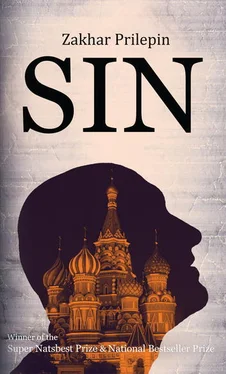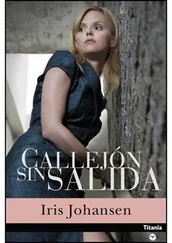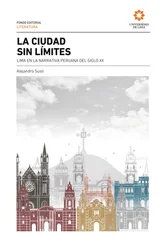Now the children strengthen and build our love. Gleb often says:
“Guilt should always be divided in half.”
He sometimes runs to his mother — he kisses her hurriedly, and then rushes to me, and also kisses me. As if we ourselves had kissed in reconciliation — we weren’t sitting in different corners of our kitchen for no reason. And what to do after this? We all three laugh together and run to Ignatka’s call to prayer.
You forgot about me! he says without words, conveying his idea like this:
“Ivau! Ga!” and something else, avoiding the alphabet.
We compare how the first has grown, and how the second is growing. They are very different. The elder liked order, he ate at specific times, slept for a certain number of hours, and woke up with an accuracy to the minute. The younger knows nothing about order, no matter how hard we’ve tried to teach him. He wakes up and goes to sleep when he feels like it; he may eat fifteen times a day, or ask for the breast four times over three days. He has his own inner laws, and good on him — the main thing is that he be in a good mood.
The younger brother is friends with the elder. For example, however I jiggle him, the baby does not laugh much. But as soon as Gleb comes along, the younger brother is prepared to play and almost jumps with his stomach, as if he could make a leap like a clever frog — from the bed into the couch, and from there on to the floor. Gleb starts to turn somersaults, or knead the pillow — Ignat laughs so hard that I am afraid for him.
And most remarkably, as soon as the parents enter the room, the laughter stops: Don’t interfere! We’re having our own fun here.
Our sons are close to each other, they have an understanding as if they were from one tribe, and my darling and I were from another. Perhaps it’s a similar tribe, but it’s still another. But it’s a friendly one, of course. And it even pays a tribute. And it’s happy that it has to pay the tribute. Otherwise, what could it do with this wealth of strength, health and love of organization? Must it really be given only to each other? Then it would run out quicker.
Ignat snuffles at the milky breast.
He’s sucked my darling dry, the little white beast.
And he holds the breast tenderly with his hands, as if he’s afraid to spill something. Sometimes he jerks: Ah, the milk has stopped flowing!
“What are you worried about, Ignat,” my darling says to him, giving a welcoming nipple to the fussing child. He closes his eyes in bliss.
Now his brother has turned up. His face is sleepy, his arms are dangling, and a morning branch is sticking up in his underpants.
“Good morning, Gleb.”
“Good morning, Papa. Good morning, Mama.”
He goes up to Ignat and touches his ear.
“Shhh…” Mama says. “Don’t bother him.”
He likes to disturb us and get in the way, talk constantly, ask questions, answer them, philosophize, make comments, generalization and far-reaching conclusions — far beyond his judgment, experience and understanding.
He can feel a change in his parents’ mood with invariable precision, a slight hint of bewilderment from his father, which would inevitably turn into anger — if not for the son.
“Papa, don’t swear!”
“I’m not swearing yet, Gleb,” I say in a cold voice.
“You already are…” he says very confidently.
You can’t hide from his confidence, you can’t get around it, to jump out of another corner, carrying your cherished resentment on your deeply unshaven face. Because while you go around it, you forget what the resentment tasted like and what color it was, and from what bacteria it appeared on earth.
My darling addresses Gleb like an oracle, like a wise man, as if he were not a rosy child on long legs, but a wise seraphim.
“Glebushka, what do you think, did I act correctly?”
Or — in a woman’s shop:
“Glebushka, which gloves do you like the best — with buckles or without?”
They like him at kindergarten, and he is accepted by the boys in our yard — although they are older than him by two, three or even four years; during family excursions to the shop, Gleb is greeted by the charming young girls from the neighboring dormitory with incredible, almost playful tenderness:
“Hi Gleb! Look,” the tender-faced blond girl says to her friend “It’s Gleb!”
“Hi there, Gleb!” the second girl cheerfully says.
And they look at him as if they are almost in love. They don’t even look at me. Damn it, they don’t even look at his father.
Gleb replies to the girls calmly, taking their joy as something for granted.
“Gleb, who are they?” my darling asks, as soon as we walk away from the girls.
He tells us their names — Vika and Olesya. And that’s it, no more information but that.
I once heard them talking — at the playground in the yard. I walked past the wooden fence and saw that these beauties were laughing, looking at Gleb — not patronizingly, in the way that youths make fun of children, but quite heartily. Gleb, waiting for them to stop laughing, continued his story, and furthermore in different characters.
It seems to me that his vocabulary is much larger than most of the guys who are the same age as these girls. Every time I walk by the dormitory, there are males smoking by the entrance — and I feel an urge to interrupt someone’s profane mumblinb:
Doesn’t it upset you that you’re already twenty years old, and you’re still a complete moron?
I’m probably getting old, if I’ve become so irritable. Ten years ago I drank a wonderfully large amount of alcoholic beverages with guys like this — and at the time I thought they were fine fellows.
I’m getting old, I didn’t even go to the girls who were being entertained by Gleb at the playground. When I saw myself as a lively father perched on the neighboring bench with some stupid phrase on his lips such as Having fun there? — when I imagined this picture, I squirmed all over with disgust.
And I’m not even thirty.
I’m not even thirty, and I’m happy.
I don’t think about the frailty of life, I haven’t cried in seven years — since the moment that my darling told me that she loved me and would be my wife. Since then I haven’t found any reason to cry, and I laugh a lot, and even more often I smile in the middle of the street — at my thoughts, at my darlings, who with their three hearts lightly beat the melody of my happiness.
And I stroke my darling’s back, and my children’s heads, and I also stroke my unshaven cheeks, and my palms are warm, outside the window there is snow and spring, snow and winter, snow and autumn. This is my Homeland, and we live in it.
Only sometimes my elder son ruins my mood with his voice, persistent as a stick:
“Mama, does everyone die, or not everyone?”
“Only the body dies, son. The soul is immortal.”
“I don’t like that.”
I avoid these conversations and smoke in the corridor. Pointlessly, as if I am intentionally halting the movement of my thoughts, I stare at the wall.
I thought about this for the first time when I was a little older than he is now — probably when I was seven.
In my grey village, which was only slightly pink in the evenings, I hacked with my little axe at the woodchips spread out on a stump when this thought unexpectedly doused my childish heart with clammy cold — and from horror bordering on anger, I hit my finger, splitting the nail in half.
Afraid to scare my grandma, who was turning hay not far away, I hid my hand, clenched it in a fist with the index finger sticking out, dripping red and smarting terribly.
My grandma — I called her “Gramma” — immediately guessed that something unpleasant had happened, and she was already running to me, asking:
Читать дальше












